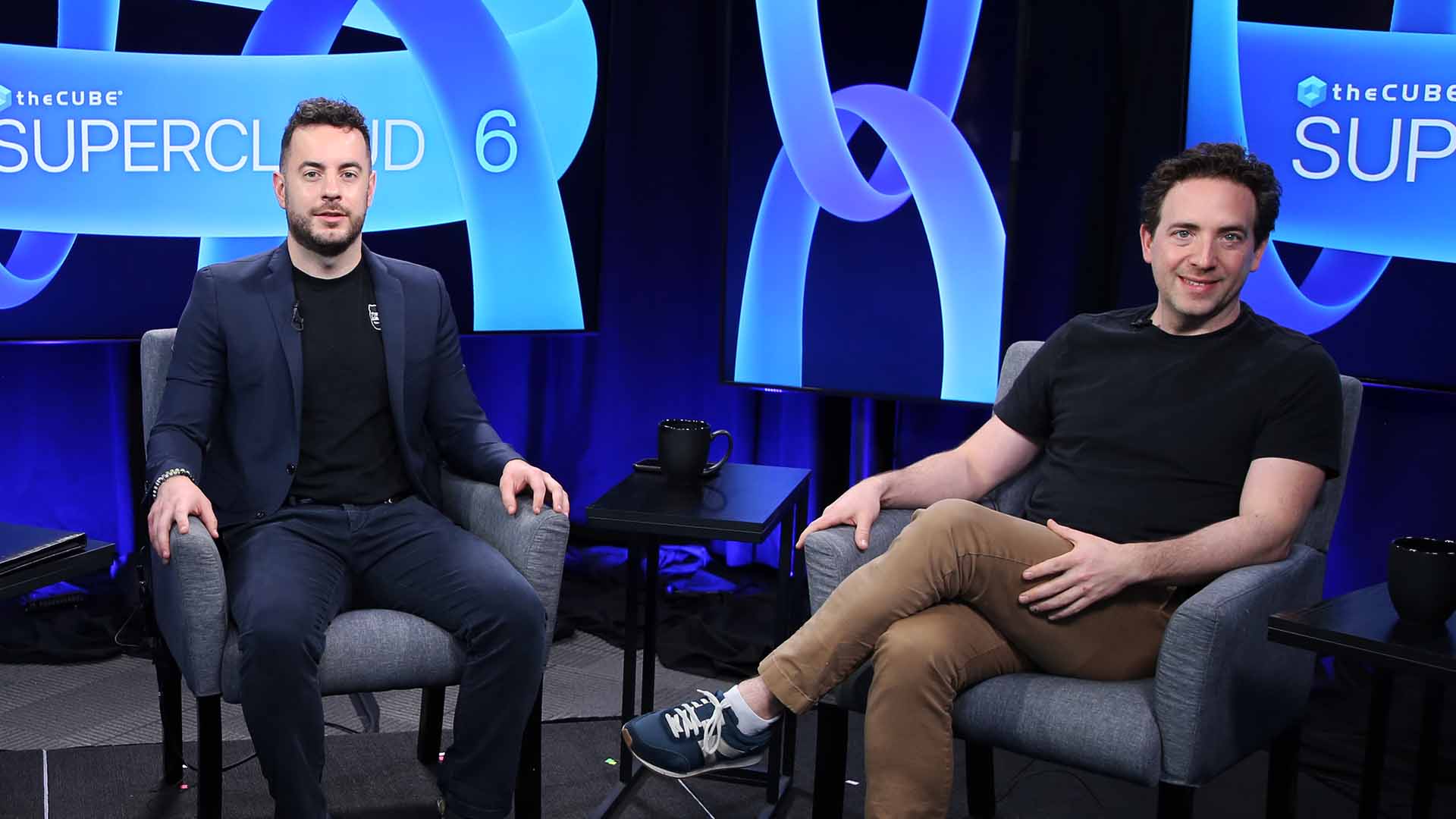 AI
AI
 AI
AI
 AI
AI
As artificial intelligence continues to evolve and apply human-like critical thinking and problem-solving traits, a major question lingers in the tech space: Will AI replace the traditional developer role?
The likely long-term answer is no, it won’t. However, the technology is set to play a pivotal role in augmenting certain aspects of software development, further boosting productivity and accuracy.
“Twenty years ago there were a million software engineers in this country; now there are four and a half million engineers — still a small percentage of the workforce,” said Eli Schleifer (pictured, right), founder and chief executive officer of Trunk Technologies Inc. “The things that software engineers do, we always have to remember, is not write code. Software engineers build products; they build things that other people care about. The part of writing the algorithm is not the hardest part of what engineers do.”
Schleifer and Massi Genta (left), founder and chief executive officer of Metabob, spoke with theCUBE guest analyst Howie Xu at the “Supercloud 6: AI Innovators” event, during an exclusive broadcast on theCUBE, SiliconANGLE Media’s livestreaming studio. They discussed AI’s transformative potential for developer assistance tools.
Coding constitutes only a fraction of software development alongside other tasks, such as product development, code reliability checks and scalability operations. Metabob leverages AI to optimize the code review process, predicting areas prone to bugs and providing recommendations for improvement. Importantly, generative AI is also useful to enhance explainability and automate code improvements, according to Genta.
“We look at the code but also things outside the code … we look at [things] like code changes,” he said. “Our main technique helps us to predict where problem will occur in specific area of code. And then we use that context to feed into generative AI, so to LLMs that we develop to then create explanations and recommendations on how to resolve the issues we detect.”
Similarly, Trunk’s approach seeks to streamline developer workflow by implementing automated code quality tools, robust continuous integration systems and solutions to tackle flaky tests, according to Schleifer. In doing so, valuable time can be freed up for engineers, enabling them to focus on solving complex problems and building impactful products.
“The AI angle here in this flaky test is [looking at] the problems that are coming out of these test reports. Can I generalize them? Can I summarize them into something easier to consume as an engineer?” Schleifer asked. “[Companies are] building highly integrated systems. When you’re doing that, your tests — because they’re talking to other systems — are going to be flaky and your CI pipeline [will] be subject to that kind of invariability.”
Looking ahead, the future is undoubtedly one where AI continues to enhance developer productivity and efficiency. AI tools will be proliferated to cater to various software development lifecycle stages, skill levels and product/industry use cases. However, the role of human input in refining AI models and providing context-specific insights will remain indispensable, as both guests agree.
“I think when it comes to software developers, I don’t see it any near future where they won’t be needed,” Genta said. “Something that humans always want to do is to improve something, so there’s always going to be maintenance.”
Here’s the complete video interview, part of SiliconANGLE’s and theCUBE Research’s coverage of the “Supercloud 6: AI Innovators” event:
Support our open free content by sharing and engaging with our content and community.
Where Technology Leaders Connect, Share Intelligence & Create Opportunities
SiliconANGLE Media is a recognized leader in digital media innovation serving innovative audiences and brands, bringing together cutting-edge technology, influential content, strategic insights and real-time audience engagement. As the parent company of SiliconANGLE, theCUBE Network, theCUBE Research, CUBE365, theCUBE AI and theCUBE SuperStudios — such as those established in Silicon Valley and the New York Stock Exchange (NYSE) — SiliconANGLE Media operates at the intersection of media, technology, and AI. .
Founded by tech visionaries John Furrier and Dave Vellante, SiliconANGLE Media has built a powerful ecosystem of industry-leading digital media brands, with a reach of 15+ million elite tech professionals. The company’s new, proprietary theCUBE AI Video cloud is breaking ground in audience interaction, leveraging theCUBEai.com neural network to help technology companies make data-driven decisions and stay at the forefront of industry conversations.